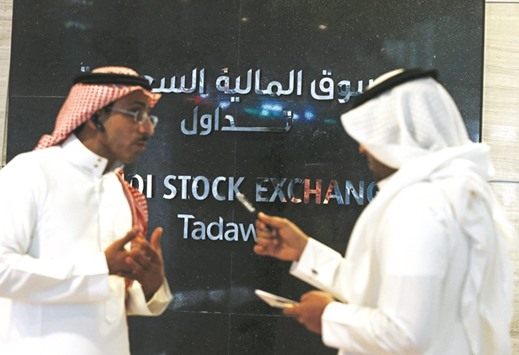Saudi banking stocks have fallen to the lowest levels in at least a decade relative to their net assets, showing the slump in oil is stoking concern that bad loans will increase.
Following a 10% slide this year, an index of 12 lenders on the Tadawul All Share Index is trading at an average 1.3 times book value, near the weakest since Bloomberg started tracking the data in 2006. Four of those have fallen below their net assets, compared with two in December, while three others are trading at multiples of just above 1. They include Samba Financial Group and Riyad Bank, the nation’s third-and fourth-biggest banks.
Investors are punishing financial stocks because “there’s an expectation of non-performing loans going up and for deposit outflows to continue,” said Chiradeep Ghosh, a research manager at Manama-based Securities & Investment Co. This “suggests banks will have to pay more to get their funding back. A weak economic environment would also impact the banks’ brokerages and investment banking businesses,” he said.
Still, NPLs made up just 1.2% of total loans held by Saudi banks at the end of September, while lenders have set aside provisions for more than the debt is worth, central bank data show. Banks should therefore be able to absorb a “reasonable amount” of toxic credit, according to Ghosh, who called valuations “very attractive.”
The Tadawul, whose price-to-book ratio of 1.4 is still higher than the MSCI Emerging Markets Index, has fallen about 33% in the past year, making it the third worst performing market tracked worldwide by Bloomberg. The price of oil, the kingdom’s primary revenue source, retreated about a third in London over that period, forcing Saudi Arabia to scale back spending.
The slow-down in deposit growth is credit-negative for the nation’s lenders, Moody’s Investors Service said in a January 28 report. The rating company expects non-performing loans to increase to 2.5% of total loans over the next 12 months.

The Tadawul, whose price-to-book ratio of 1.4 is still higher than the MSCI Emerging Markets Index, has fallen about 33% in the past year, making it the third worst performing market tracked worldwide by Bloomberg
